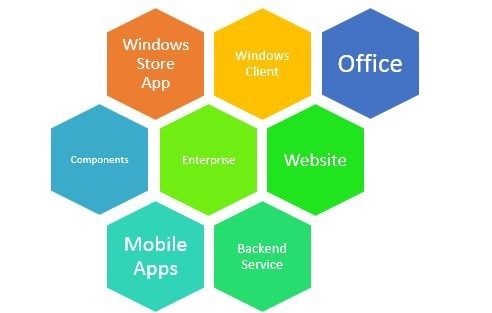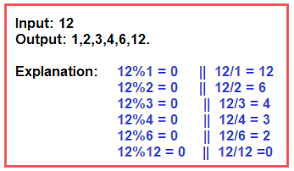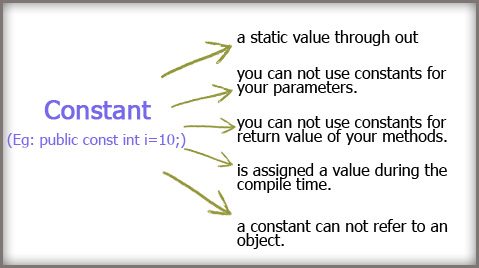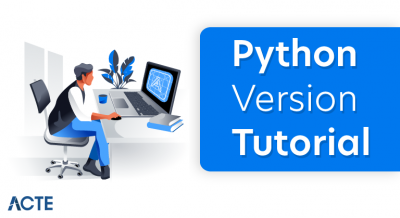
- C# Introduction
- A portion of the significant highlights of C# are as per the following
- Benefits of C#
- How is C# not quite the same as C?
- What is the extent of C#
- Why C#?
- Factors in C#
- Constants in C#
- C# Variables
- C# Constants
- Compiler blunder
- Var and drifting point numbers
- Outline: Points to recall
- C# is intended for the Common Language Infrastructure (CLI), which depicts executable code and runtime climate. This permits the utilization of numerous undeniable-level dialects on different PC stages and designs.
- Normal Language Runtime (CLR) is characterized in the Common Language Infrastructure (CLI). CLR is the Virtual Machine part dealing with the execution of projects written in dialects utilizing the .NET Framework. A portion of its models incorporate C#, F#, and so on
- The .NET source code is aggregated to Common Language Infrastructure (CLI). The code is executed at runtime after the CIL is changed over to local code. This is finished utilizing JIT (Just-In-Compiler) compiler.
- Web applications
- Window applications
- Data set applications
- Appropriated applications
- Web administration applications
- One of the benefits of C# is that it gives a programmed trash assortment.
- Pointers are not needed in C# yet are discretionary can in any case be utilized.
- Classes can be characterized inside classes in C#.
- There is no compelling reason to utilize “.h” in header documents.
- The projects are less mistake inclined as nonboolean factors can’t be utilized as conditions.
- C# has reflection capacities for example it can analyze as well as change its construction at runtime.
- There is no compelling reason to pronounce capacities and classes in C#. runtime.
- Classes and capacities can be characterized in any request in C#.
- The applications can be executed in a limited sandbox in C#.
- Every one of the factors in C# is consequently instated to their default values before they are utilized.
- No worldwide factors or capacities exist in C# as every one of them has a place with the class.
- C# is a naturally versatile as well as updatable language. The old documents are routinely refreshed and supplanted with new ones.
- C# is a seriously famous language as it is utilized for web improvement, portable advancement, and so forth Likewise WPF, UWP, WinForms, and so on can be utilized to make different Windows applications. Android, iOS applications can be fabricated utilizing the C# portable turn of events. So, C# can be utilized to make any sort of programming. A portion of the streams in which C# can be used are man-made brainpower, cloud applications, AI, information science, and so on
- C# is seemingly quite possibly the most famous dialect in the present day time. It is utilized for web advancement, portable improvement, and so on Additionally WPF, UWP, WinForms, and so on can be utilized to make different Windows applications. Android, iOS applications can be constructed utilizing the C# portable turn of events.
- So, C# can be utilized to make any sort of programming. A portion of the streams in which C# can be used are man-made consciousness, cloud applications, AI, information science, and so forth.
- Here, “DataType” can be any substantial C# information type, for example, int, float, twofold, roast, bool, and so forth “VariableList” may contain at least one variable names isolated by commas.
- Factors can be instated utilizing the task administrator with the variable name on its left side and the worth relegated on its right side. This is displayed as follows:
- utilizing System;
- namespace Demo {
- public class Example {
- public static void Main(string[] args) {
- int val;
- val = Convert.ToInt32(Console.ReadLine());
- Console.WriteLine(“Value of val is {0}”, val);
- }
- }
- }
- “DataType” can be any legitimate C# information type, for example, int, float, twofold, singe, bool and so on
- “ConstantName” is the name given to the consistent.
- “esteem” is the worth allocated to the consistent
- A variable is an identifierr that means a memory area to store an information esteem and every factor has a sort that figures out what worth can be put away in the variable.
- A variable might take the various qualities at various times during execution of the program.
- Variable name ought to be pronounced before it is utilized in the program.
- Variable name can be chosen by developer in a significant manner.
- mean is one of the variable in your program which address the mean worth.
- length
- width
- stature and so forth
- Should not start with a digit
- Capitalized and lower case are unmistakable
- Ought not be C# watchword
- Space isn’t permitted
- Quite a few characters (Any length)
- The variable whose worth don’t change during the execution of a program.
- Test C# program for variable assertion, introduction and constants
- This C# program is utilized to disclose how to announce and introduce the factors and furthermore utilizing contants.
- Severity Code Description Project File Line Suppression State
- Error CS0131 The left-hand side of a task should be a variable, property or indexer ConsoleApp2 D:\C#_Programs\VariableTest.cs 18 Active’
- You can put something inside the case.
- You can eliminate the substance whenever to work with.
- You can change the substance inside the container whenever.
- You can give the case to another person so they can get things done with it.
- In the model above, we pronounced a variable called shoes. The kind of information it will hold is full numbers, or numbers, so we utilize the catchphrase int as the sort.
- The assertion peruses: pronounce a variable named shoes of type int
- We can store whole numbers in this factor from this point forward. We can’t store, for instance, burns like “Hi World”.
- In the model above, we allocate the worth of 10 to the variable shoes.
- The assertion peruses: set the worth of shoes equivalent to 10
- We don’t determine the sort once more. That is on the grounds that the variable as of now exists thus the compiler will know its sort. The statement is just done once yet we can appoint qualities to it however much we like.
- In the model above, we changed the worth from 10 to 12 and afterward from 12 to 16. Presently the worth of shoes will be 16 and at this point not 10.
- In the model above, we make a variable named shoes, with a worth of 10.
- The assertion peruses: pronounce a variable named shoes of type int with a worth of 10 instate a variable inline
- Assuming we realize that numerous factors will have similar sort we can announce them inline.
- var num = 4.999999999999995;
- Operands, Lvalues and Rvalues
- A lvalue can have a worth relegated to it. It can likewise be utilized to allocate a worth to something different. Thus, it’s permitted to show up on the left and right half of the task administrator. An ordinary illustration of a lvalue would be a variable.
- The worth of the pi steady in the model above can’t be changed while the application is running. We use constants for security in our applications. We may not need specific qualities to be unintentionally different at runtime, similar to the worth of Pi, or gravity.
- A variable is a changeable information compartment that will briefly hold our application’s information through runtime.
- We should determine the sort of information that a variable will hold while proclaiming or introducing it.
- We can utilize the programmed type var to allow the compiler to surmise the sort from the substance of the variable.
- A consistent is a permanent information compartment and is utilized when we don’t need information to change at runtime.
- The two kinds of articulations in C# are Lvalues and Rvalues
- Lvalues are the operands on the left of the = administrator.
- Rvalues are the operands on the right of the = administrator.
C# Introduction
A portion of the significant highlights of C# are as per the following:
1. Object-Oriented Language
C# is an item arranged language. This implies that improvement is more straightforward assuming there are long codes in enormous ventures when contrasted with strategy situated programming dialects.
2. Organized programming language
The projects in C# can be organized by breaking them into more modest parts utilizing capacities. This makes the program clear.
3. Easy to utilize
It is very easy to involve C# as it has different elements and functionalities. Additionally, it gives an organized methodology that makes the program clear.
4. Adaptable language
C# is a consequently adaptable as well as updatable language. The old records are routinely refreshed and supplanted with new ones. Numerous applications can be made utilizing C#. A portion of these are given as follows:
Benefits of C#
C# is a broadly useful item arranged programming language with numerous standards. This language enjoys many benefits. A portion of these are given as follows:
How is C# not quite the same as C?
C# and C are both programming dialects. C is a broadly useful programming language and it upholds recursion, organized programming, lexical variable degree, and so forth C# is a broadly useful article arranged programming language with highlights, for example, trash assortment, adaptability support, type wellbeing, more straightforward sort presentations and so on, By and large, C and C# are very unique and have a larger number of contrasts than likenesses.

What is the extent of C#
C# is a universally useful article arranged programming language with various ideal models. It was intended for Not unexpected Language Infrastructure (CLI) in 2000 by Microsoft. for its .NET system and supported by ECMA and ISO. C# has colossal extension particularly since its .NET adaptation was made open source as of late. Besides, C# is very simple to realize which contributes colossally to its ubiquity. Additionally, it has various elements that permit the formation of solid framework parts. A portion of these elements are:
Object-Oriented LanguageC# is an article arranged language. This implies that advancement is more straightforward assuming there are long codes in enormous activities when contrasted with system situated programming dialects.
Organized programming language
The projects in C# can be organized by breaking them into more modest parts utilizing capacities. This makes the program more obvious.
Scalabale language
Why C#?
C# is a universally useful article situated programming language with different standards. It has various focuses that make web advancement arrangements quicker as well as simpler. A portion of these are trash assortment, versatility support, type security, simpler sort assertions, and so on. There are different motivations to use C#. A portion of these are given as follows:
Fame
Simplicity of Learning
C# is very simple to learn and can be effortlessly perceived. It very well may be dominated in a somewhat brief time frame, particularly for the people who as of now have some involvement in programming dialects. Additionally, C# and Java are very comparative linguistically and the individuals who are knowledgeable in Java can undoubtedly comprehend C#.
Pay Scale
C# software engineers and designers work with C# in an application and advancement limit. They work in an assortment of organizations with assignments, for example, coding, planning, testing, and so forth, and procure likewise
Factors in C#
Factors are the names utilized for the capacity regions that are controlled by the projects to get different outcomes. There are various sorts of factors like vital, drifting point, boolean, character and so forth The variable kind decides the size and design of the variable memory.
Variable Definition and Initialization
A variable can be characterized utilizing the accompanying punctuation:
DataType VariableList
A rundown of legitimate and invalid variable names is as per the following:
int var;//Valid
int _var;//Valid
int var1;//Valid
int name_var_1;//Valid
int 10;//Invalid
int 10val;//Invalid
int name var 1;//Invalid
int switch;//Invalid
Perusing input from Console
The capacity ReadLine() in the Console class in the System namespace is utilized to acknowledge input from the client and store it into a variable. This should be possible by composing Console.ReadLine() to acknowledge the client input. Notwithstanding, this acknowledges the contribution to string design thus Convert.ToInt32() is utilized on account of int information types to change the contribution over to int. A program to exhibit this is as per the following:
Source Code: Program to peruse input from Console in C#
The result of the above program for input esteem 5 is:
Worth of val is 5

Constants in C#
Constants in a program are fixed qualities that can’t be adjusted whenever they are given. They can be a number consistent, drifting steady, character steady or string strict. Constants can be characterized utilizing the const watchword. The language structure is given as follows:
const DataType ConstantName = esteem;
Here, “const” is the catchphrase
C# Variables
Not many variable names are:
Variable name may consistes of letters in order, digits and highlight with subject to following conditions:
C# Constants
Compiler blunder:
A variable
Whenever a program is running it needs to work with information. For instance, an adding machine would have to store the numbers a client contributions to have the option to do a few estimations. This information is briefly put away in the memory (RAM) of your PC over the lifetime of the program. Whenever the program quits running, the information is eliminated from memory. We store this information into information holders like factors and constants. Consider a variable a little box.
In C# we can store one sort of thing in a container, for instance, a case can hold shoes. To place socks in there too we would require a new seperate box for them. We additionally need to compose on the container what sort of content it will hold and give the case a name.
Make (pronounce) a variable
To make a variable, we pronounce it. To begin with, we determine the kind of information it will hold, then, at that point, we give the variable a name.
Language structure:
type indentifier;
Allocate information to a variable
Now we have an unfilled box, prepared for something to be put inside it. To dole out information to a variable, we utilize the task administrator ( = ). We compose the variable name, trailed by the = administrator, and afterward the worth that we need to store.
Punctuation:
indentifier = esteem;
Instate a variable
We can proclaim a variable and relegate information to it in one stage. This is known as instating a variable. To introduce a variable, we dole out a worth to it while it’s being proclaimed.
Punctuation:
Model:
type name1, name2 = 10, name3 = 20;
We pronounce or instate our factors as we would typically. But, this time we just determine the sort once and separate every presentation or introduction with a comma.
Var as a programmed type
A few factors in C# might be instated without an unequivocal sort. The compiler will take a gander at the information in the variable and decide its sort consequently. We supplant the sort with the catchphrase var. One more decide about var is that it should be instated with a worth. A var can’t be vacant when it’s proclaimed.

Var and drifting point numbers
Whenever we use var with a drifting point number, it will consequently utilize twofold with its accuracy. In the event that we needed a float, we would need to announce a float type expressly.
Model:
There are two sorts of articulations in C#:
Lvalues. Operands on the left or right of the task administrator.
Rvalues. Operands on the right of the task administrator as it were.
Lvalues






